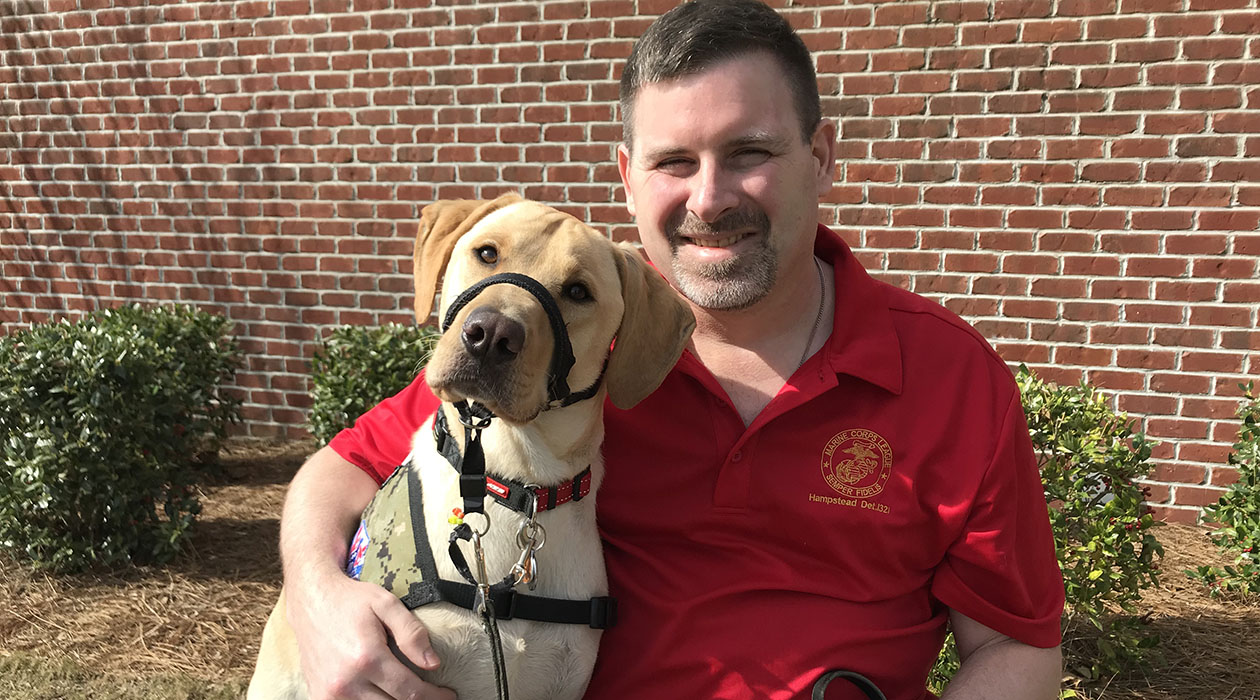Because of Cyrus, Rob is finally at ease when he goes out to eat with his family. With Micah, Daniel sleeps seven hours a night, instead of two, allowing him to function better and spend more quality time with his young daughter. Because Sam is always by his side, Chris no longer needs a cane. With Forest, Shawn attended his son’s graduation and fulfilled his life-long dream to hike the Appalachian Trail. Gary is no longer concerned that a fall could leave him stuck on the floor, because Sarai is always there to help him up.
Those are just a few of the lives changed by Canines for Service, a North Carolina non-profit that pairs people with a disability with highly trained assistance dogs. Veterans are a special focus for the group, and many of the organization’s clients are disabled service members with mobility limitations, traumatic brain injury or post-traumatic stress disorders.
What sets Canines for Service apart from similar organizations is their commitment to only use dogs from shelters or rescues. “We rescue dogs that have been dumped, abandoned, found as strays or dropped off at kill shelters, often for reasons like ‘the dog had too much energy’ or ‘they aren’t a small puppy anymore,’” explains Colleen Vihlen, the organization’s interim executive director.
She recalls Dexter, who was surrendered to a rescue after his previous owner threatened to shoot him. Then there’s Lilah, who had 30 BB pellets scattered throughout her body, while Maddox was an hour away from euthanasia when Canines for Service gave him a second chance.
Each service dog learns specific commands to mitigate their veteran’s disability. According to Colleen, that training, coupled with the dog’s unwavering loyalty and companionship, can change a veteran’s outlook on life from hopelessness to optimism. “Dogs are remarkable beings,” she says. “They love unconditionally, and their understanding and capability is truly limitless.”
At Canines for Service, the once discarded dogs are given love, a second chance in life, and a new purpose. “They go from the shelter to someone’s hero,” Colleen concludes. “These dogs are truly saving people’s lives.”

